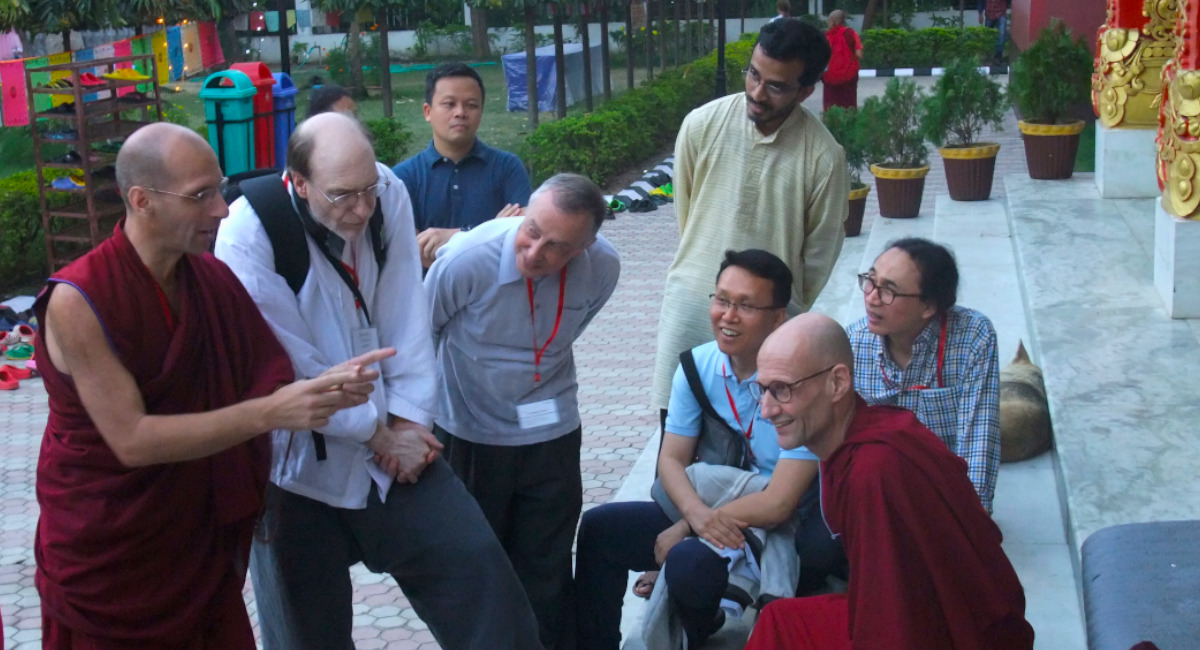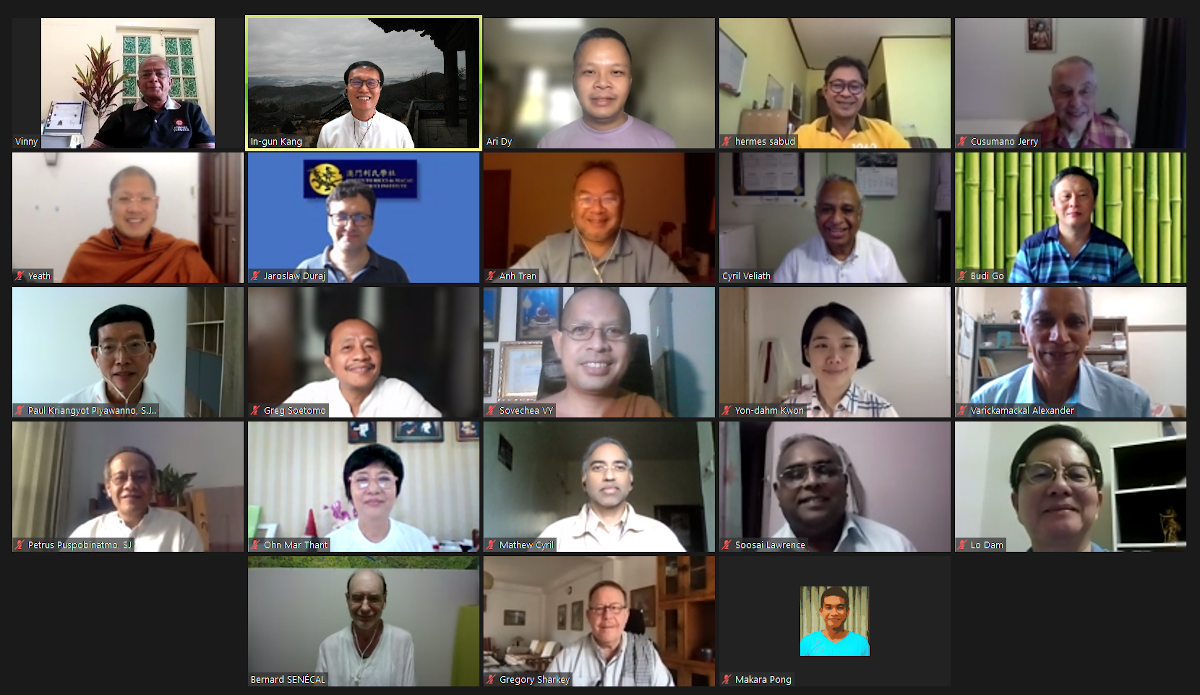
File photo
The international conference of the Buddhist Studies and Dialogue Group turned to virtual this year after safety concerns from Covid-19 continue to restrict travel and in-person gatherings.
The conference organised in collaboration with the Jesuit Conference of South Asia aims to promote the in-depth study of Buddhism; facilitate Buddhist-Christian dialogue on academic, spiritual, and practical levels; encourage the study of Ignatian Spirituality as it relates to Buddhism; and offer support, friendship, and fellowship among Jesuits and lay people engaged in Buddhist studies and dialogue.
In its 10th year, the conference’s online format did not fall short in providing the participants opportunities for learning, meaningful dialogue, and innovation. Paper presentations and fruitful discussions continued as usual with adjustments in the pace and length of the conference, which was shortened to two days, from 13 to 14 August, from its standard three-day programme.
Fr Bernard Senecal SJ, Professor at Sogang University and Founder-Chairman of the Way’s End Stone Field Community, gave the keynote address on “Japanese Buddhist Modernism and the Thought of Sŏn Master Toeong Seongcheol”. His presentation focused on the life and teachings of a very important 20th century Buddhist teacher and reformer. It provided a good summary of the history of Buddhism in Korea, its relationship to other faiths, and its position towards the government in the past century. This fueled an active discussion among the group with some participants remaining online to continue the conversation even after the session had formally ended.
An innovation the conference adopted this year was the conduct of parallel sessions, in which the participants were able to choose ahead of time the session they wished to attend. The topics covered Buddhist History presented by Fr Anh Tran SJ, Buddhist Psycho-Spirituality presented by Fr Lawrence Soosai SJ, and Buddhism and Ignatian Spirituality presented by Yon-dahm Kwon.

Fr Tony Moreno SJ, JCAP President, was grateful and pleased to see lay people, Buddhist clergy, and other religious taking part in the conference. He shared the JCAP Apostolic Plan 2021-2025 and the broad process of discernment that went into its formulation, noting that it is an outgrowth of the four Universal Apostolic Preferences. He highlighted some concrete ways in which the work of the JCAP Buddhist Studies and Dialogue Group can relate to the Apostolic Plan and the Universal Apostolic Preferences.
In addition, Fr Greg Sharkey SJ, General Counsellor for Buddhism, and Convenor of Ecumenism and Interreligious Relations (EIR) of the Society’s Secretariat for the Service of Faith, proposed that in subsequent meetings participants be given the opportunity to comment on a specific topic Fr General Arturo Sosa SJ gives each year to members of EIR for reflection. His proposal was greatly welcomed and referred to the core group for further consideration.
Something to watch out for is the publication of the second book of the Buddhist Studies and Dialogue Group, which is in its final stages of production, said Fr In-gun Kang SJ. The book will contain 28 articles written by past and present conference participants.
As the sessions wound down and discussion on the possibilities for the next conference commenced, many hoped to finally meet in Seoul as was originally planned this year. Some regretted the lack of direct fellowship and the opportunity to meet one another face-to-face. Others mentioned that they missed the opportunity to learn about the form of Buddhism practised in the host country. Overall, however, the participants acknowledged the uncertainty of going back to the traditional mode of meeting, and the necessity of looking for ways to make online conferences better should they become the norm.






